ReviewOrange Is The New Black: Presenting The Vibrant Angelus U41 Tourbillon Skeleton
Angelus are among the few watchmakers that have adapted to the current demands of watch lovers by building on their glorious Swiss haute horlogerie heritage, but with an eye on the 21st century. Their U41 Tourbillon Skeleton timepiece defines their watchmaking ethos that’s marked by efficiency, adaptability, supreme engineering and high performance. Here’s a closer look
May We Recommend
While complications in life may generally not be a good thing; in the fine watchmaking landscape, they’re always more than welcome. And what better than a tourbillon to add glory to a watch and just change the entire design and technical dynamics with this mechanism. Now we all know that the tourbillon was created by the legendary 18th century watchmaker, Abraham-Louis Breguet in around 1795, and it translates to ‘whirlwind’ in French. This was developed to improve the accuracy of a movement by negating the effect of gravity, which tends to slow down its functioning. In this mechanism, the escapement and balance wheel are mounted in a rotating cage, which helps when a watch is stuck at certain angles. This continuous rotation at a slow pace helps to average out any errors that may impact the rate of precision of a watch. However, in modern-day timepieces, a tourbillon is not really required but brands with a rich watchmaking legacy continue to equip their watches with this mechanism since it’s a reflection of their technical prowess and a nod to their traditional Swiss watchmaking know-how.
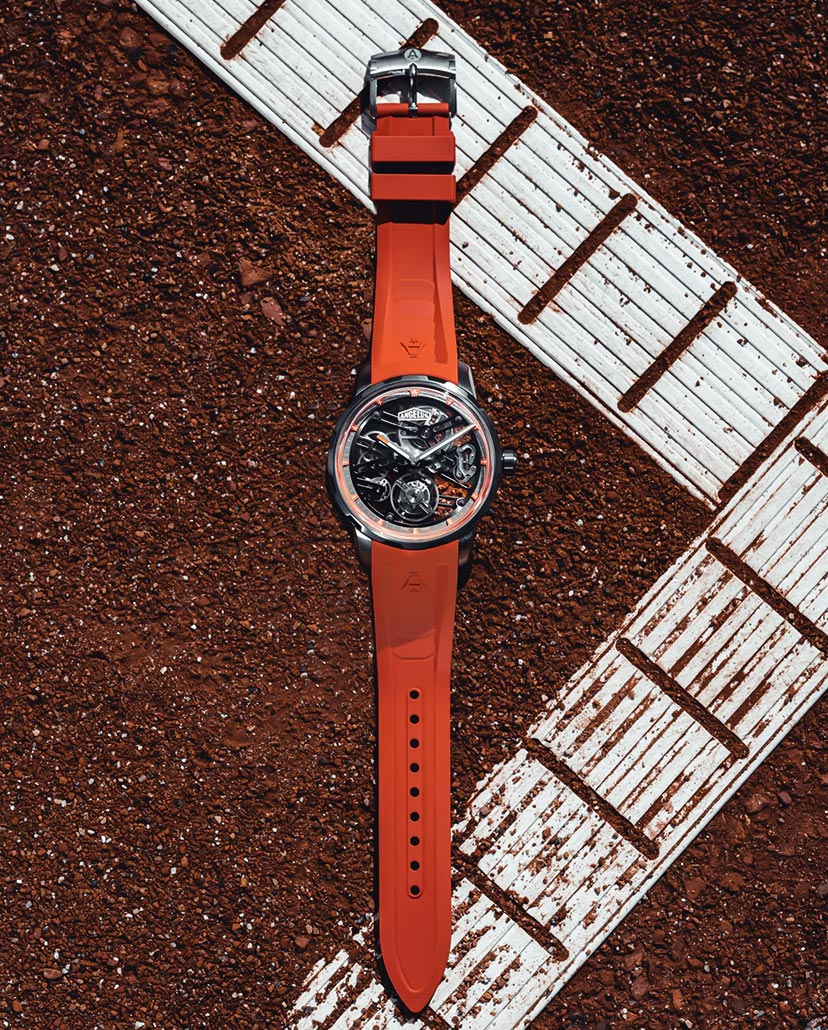
One such brand that comes in the league of such fine watchmakers is Angelus—which boasts a rich history of over 125 years. While the brand stopped its operations and was wiped out due to the quartz crisis of the 1970s, it was revived in 2011 and has since then been producing high complications with a mastery of chronographs and tourbillons. The brand stands out for their watches with open-worked structures—an extremely intricate and difficult task to execute, especially when one is equipping a timepiece with a delicate mechanism such as a tourbillon. Don’t get me wrong, it’s not that brands are not doing it, but it’s one thing to merely have a tourbillon displayed on a watch for the sake of it; it’s another to incorporate this mechanism and beautifully integrate it with a timepiece’s overall design and functionality so that it looks effortless. Angelus have been able to achieve this, thanks to their technical know-how that they’ve possessed since their inception in 1891. Back then, they were not merely producing complex pocketwatches with generous power reserves of around eight days, but they were one of the few companies that were producing their own movements, and even supplying to other brands such as Panerai. While back in the day Angelus were producing timepieces with classical designs coupled with technically-superior movements; in their second innings, the brand have shifted gears to producing more futuristic timepieces that are built on years of mastery of the fine watchmaking craft.

Last year, they introduced the U41 Tourbillon Skeleton watch in grade-5 titanium—available in either an orange or a blue colour scheme, limited to 25 pieces for each. This timepiece with a flying tourbillon makes for a striking technical marvel since the design features an intricate skeletal structure that houses a complex mechanism—a difficult feat to achieve in watchmaking due to the fragility of an open-worked architecture. And despite the out-and-out sporty look, the timepiece doesn’t feel heavy on the wrist and is extremely comfortable, while giving a clear view of the inner workings. Let’s take a closer look.
Angelus U41 Tourbillon Skeleton: Striking Design And Structure
The graphic structure of the movement equipping the U41 Tourbillon Skeleton characterises its style. Enclosed in a 42mm titanium case, it reveals high symmetry in architecture, and unfolds in a series of black and transparent sections, within a frame that is both minimalist and graphic. Technical aspects merge with the aesthetic signature in an optimal combination of stability, design and ergonomics. The network of open-worked plates and bridges thus forms and defines the very identity of this timekeeper. The watch, as mentioned earlier comes in two versions: one with zesty orange hues, and the other with various shades of blue illuminated by yellow inserts on the minutes hand and minute circle. White Super-LumiNova coats the hours and minutes hands, and the watches are presented on rubber straps that work beautifully with the dominant colour schemes.
Dual Expertise
On the one hand, the watch features Angelus’ in-depth knowledge in designing and developing complications and skeleton calibres. On the other, it carries a distinct persona that features a committed style, accompanied by a comfortable and proportionate wearing experience on the wrist. The U41 Tourbillon Skeleton is a sporty watch, as exemplified by its sculpted rubber strap, notched bezel, titanium case and movement designed in a metallic ‘mesh’ format.
The Powerhouse: Calibre A-300
The U41 Tourbillon Skeleton is driven by the skeletonised A-300 calibre, where in order to strike the perfect balance between structural solidity and openwork detailing, Angelus have opted for a ‘dual-beamed’ plates and bridges design. The void that separates the two arms from these supporting elements is studded with jewels that accommodate the wheel axes. All of these components are treated with black ADLC to add contrast and texture. Also, by enclosing all the main elements, including the wheels and the barrel, between two plates, the movement delivers maximum stability. Angelus movements frequently exhibit 90-hour autonomy, enabled by a balance oscillation speed of 3Hz. For the A-300 calibre, the frequency has been set at 28,800vph or 4Hz for 60 hours of continuous energy supply to the watch. This higher frequency safeguards the accuracy of the movement during impacts, and thus reduces its power reserve.
With the U41 Tourbillon Skeleton, Angelus have struck a chord between substance and form since their goal was to craft a light yet sturdy and durable sports watch. Coupled with a clean, open-worked design and equipped with a solid movement that is capable of withstanding impacts and cushioning shocks without breaking or being deformed, it is a fine example of how timepieces can carry a complex aesthetic, yet offer simple timekeeping with aplomb without compromising on functionality.
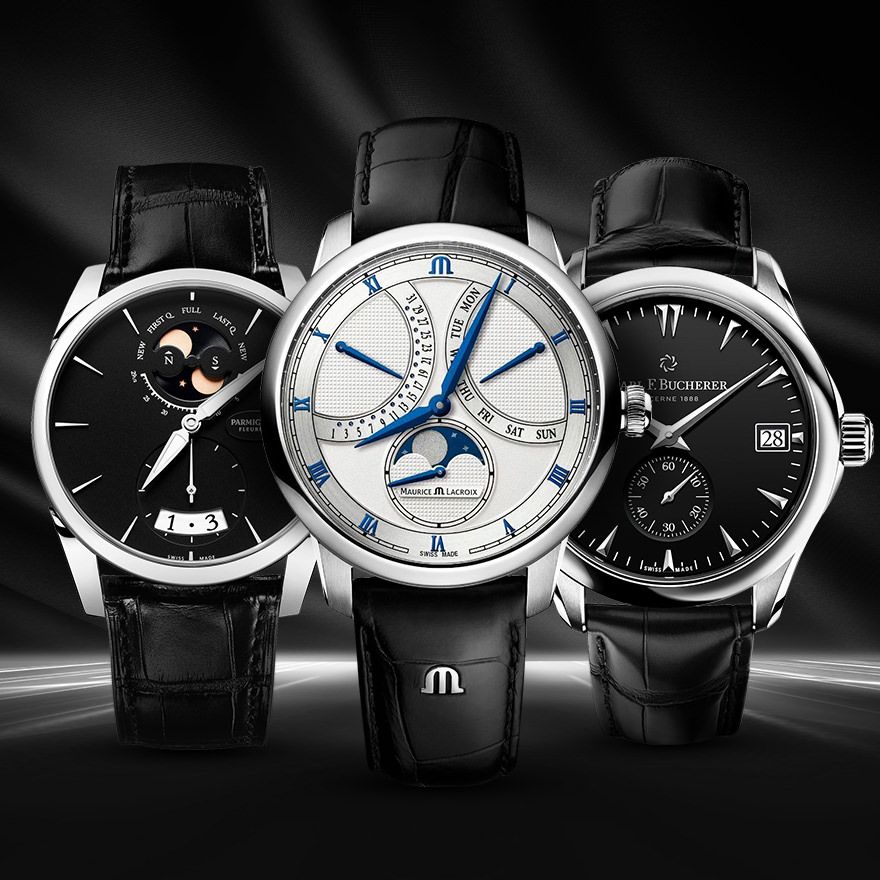

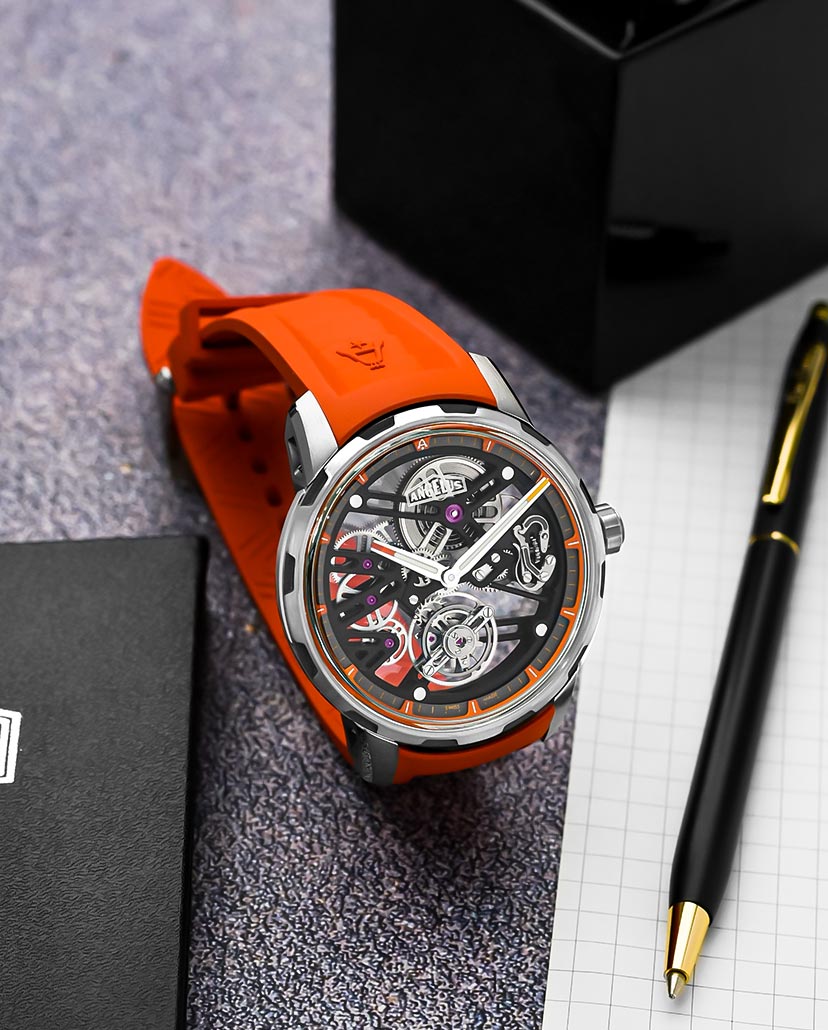
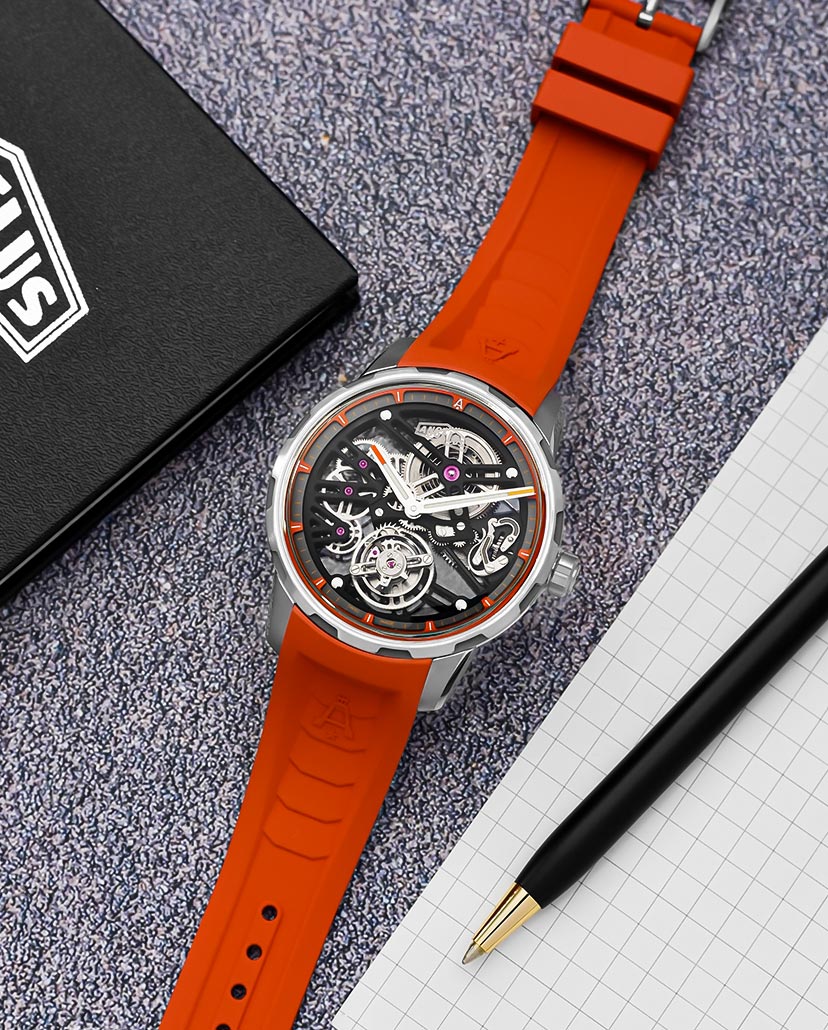

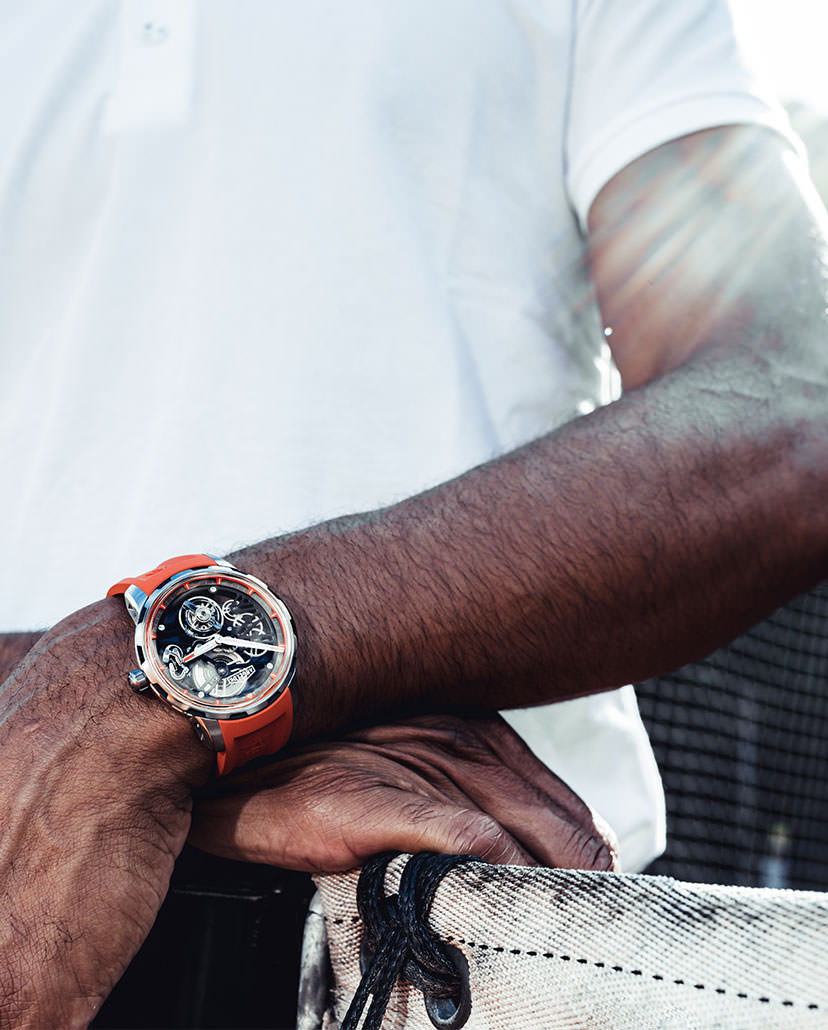
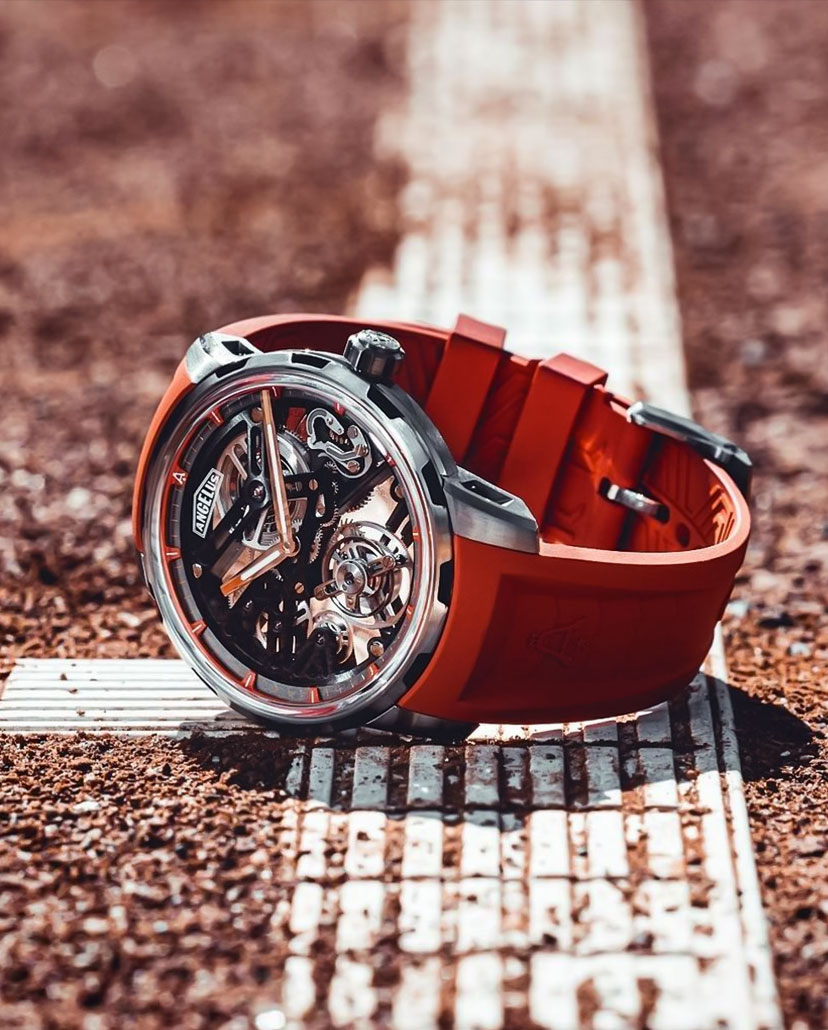
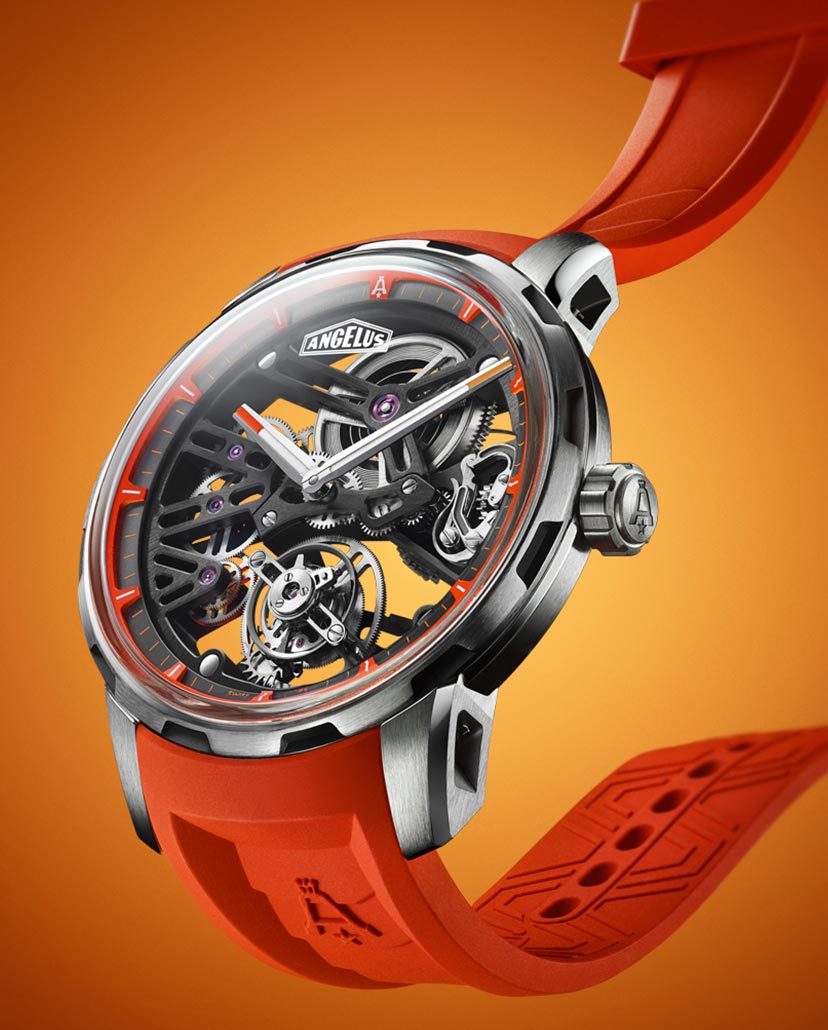
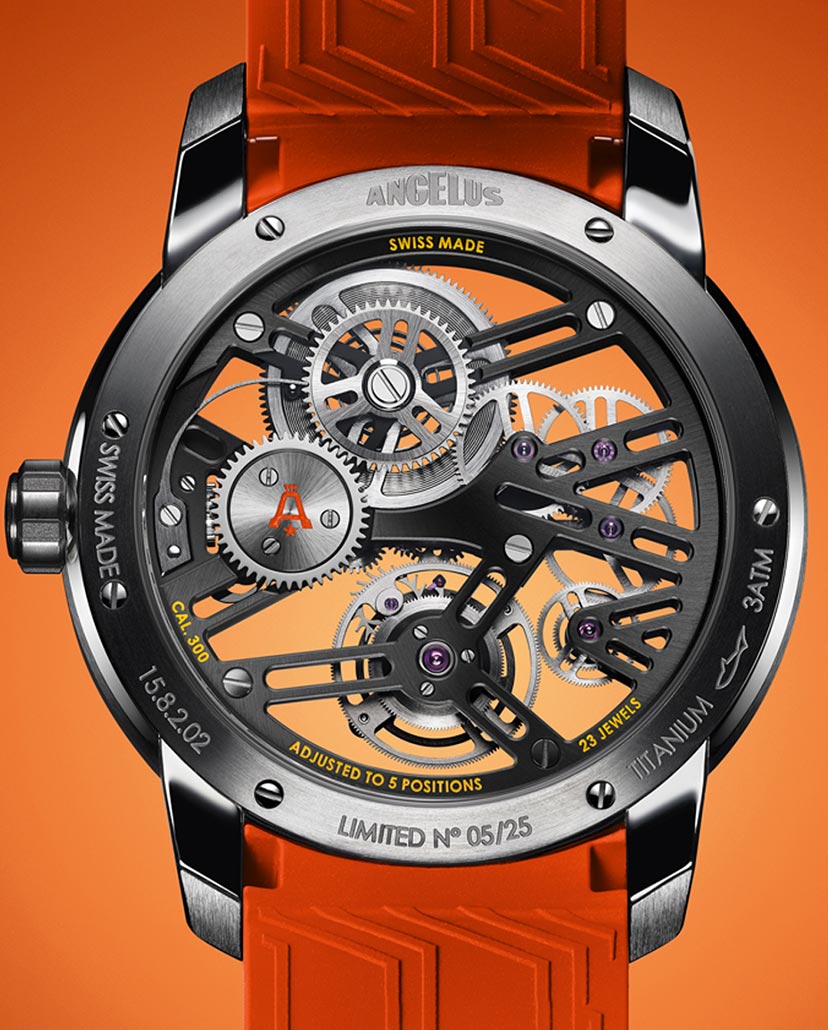

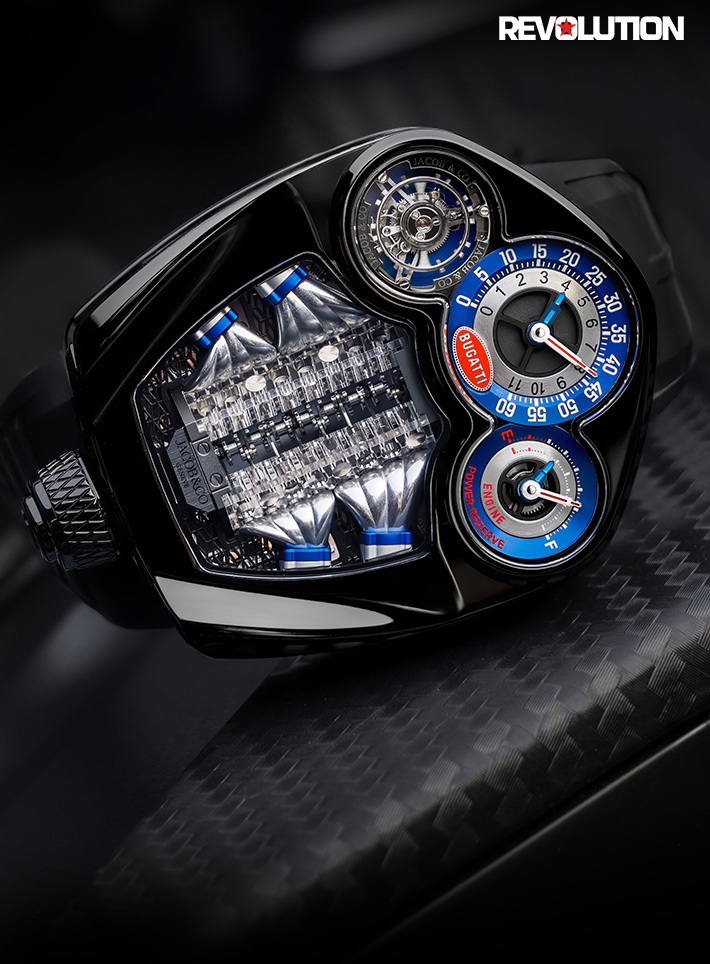
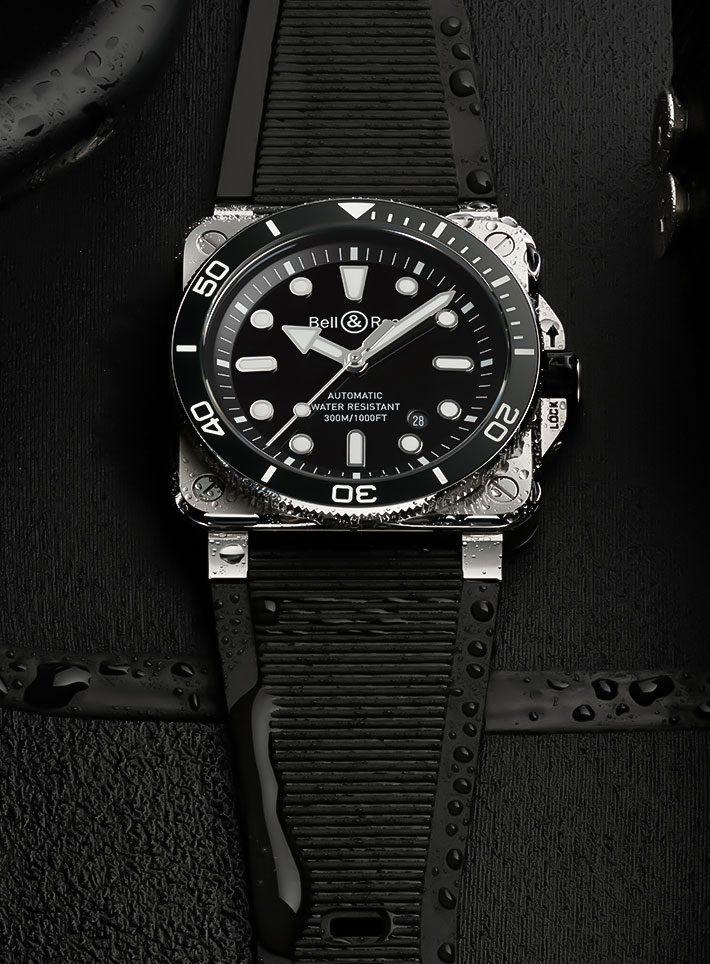
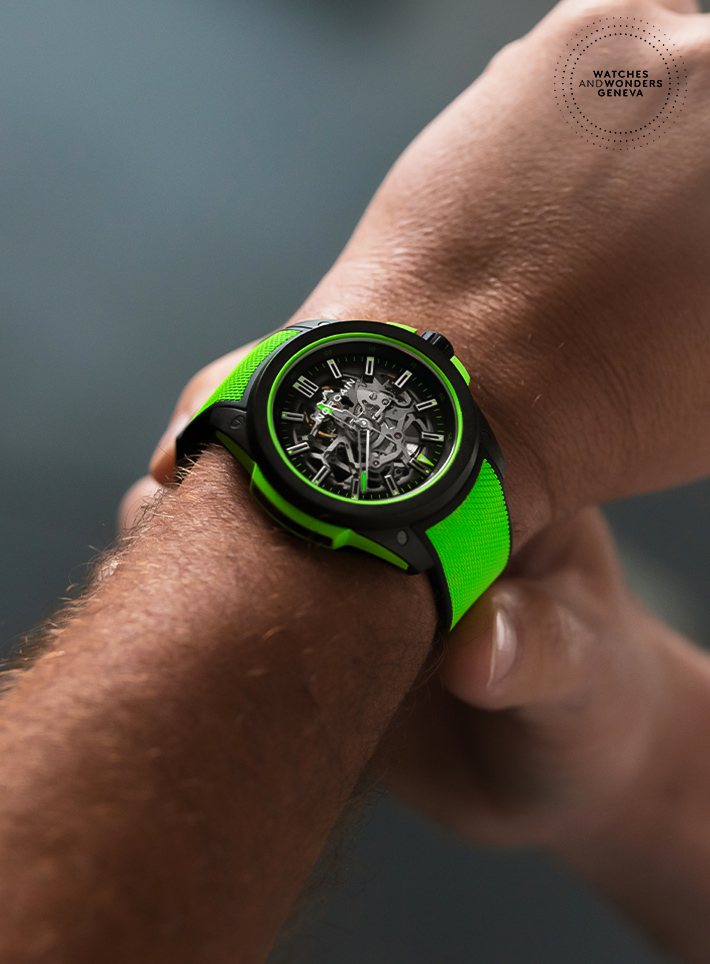
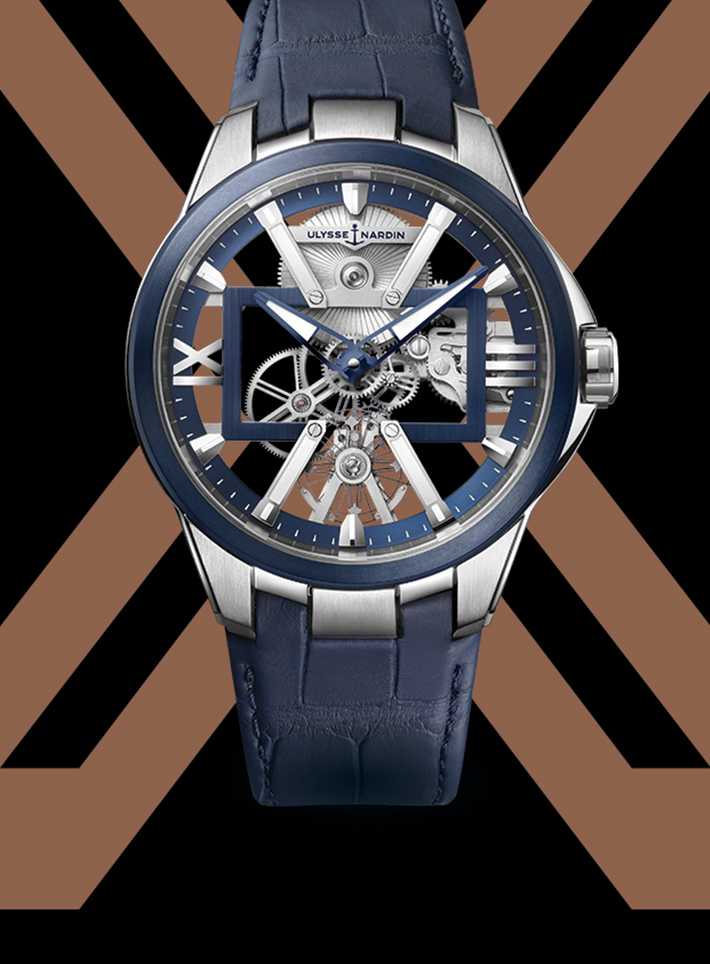

Good